
From Four Different Continents with A Unified Mission
- Date 2019-12-03 06:20
- CategoryStory
- Hit3494
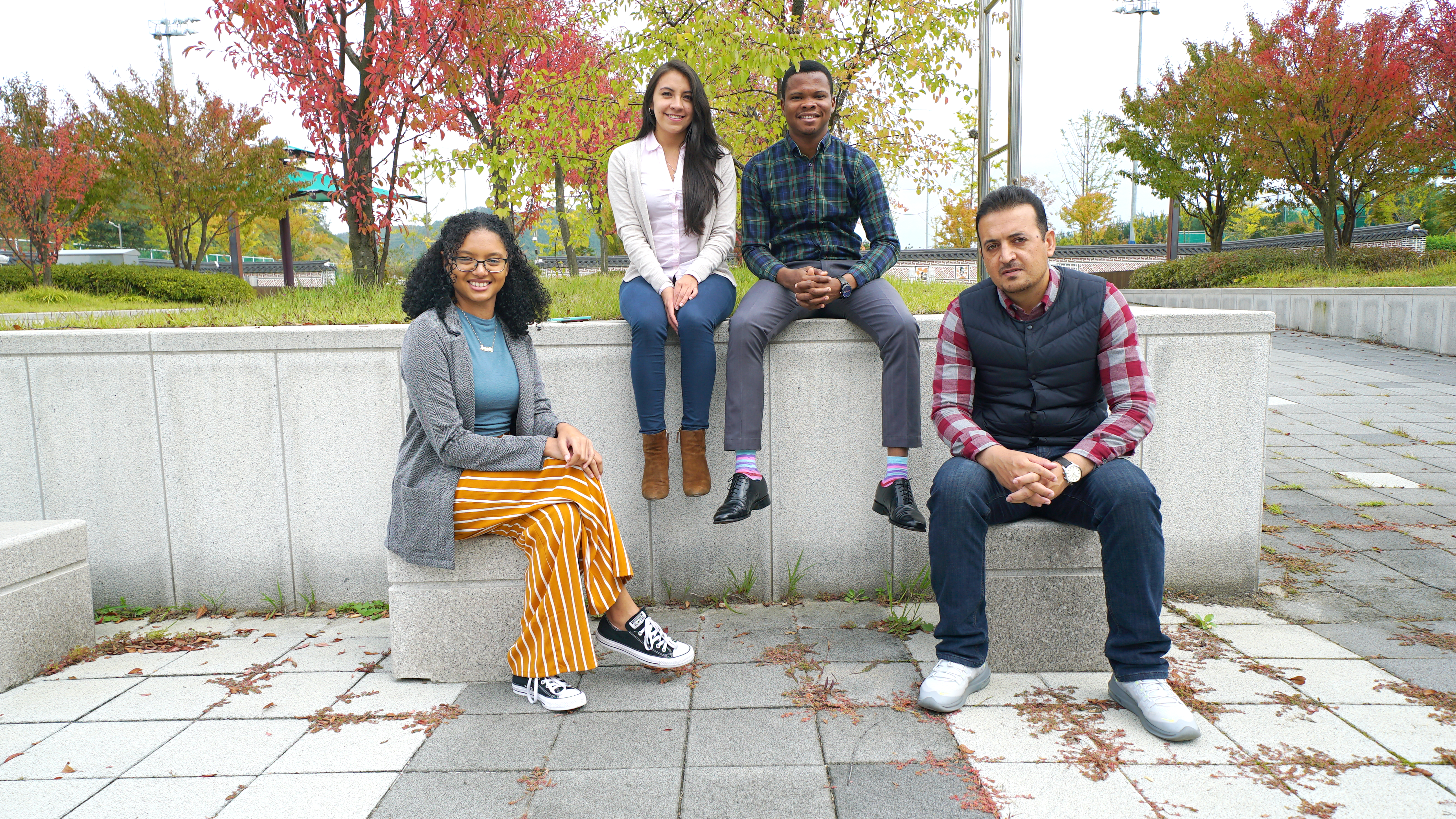
It has been three months since the 2019 Fall students started classes. The semester is almost over. Everyone is busy with classes and final exams. Amidst all this, I caught up with 4 of our current students from 4 different continents: Asia (Afghanistan), Africa (Nigeria), S. America (Ecuador) and North America (Bahamas) to talk to them about their journeys. We discussed their work experiences before coming here, the application process, and how they intend to use the knowledge they have acquired at KDIS to foster social and economic progress in their home countries after graduation. Our conversation was full of insight, laughter and passion. I hope you enjoy the interview and learn as much as I did from it. Potential students might find it useful when writing their applications.
1. Please introduce yourself.
Andrea:
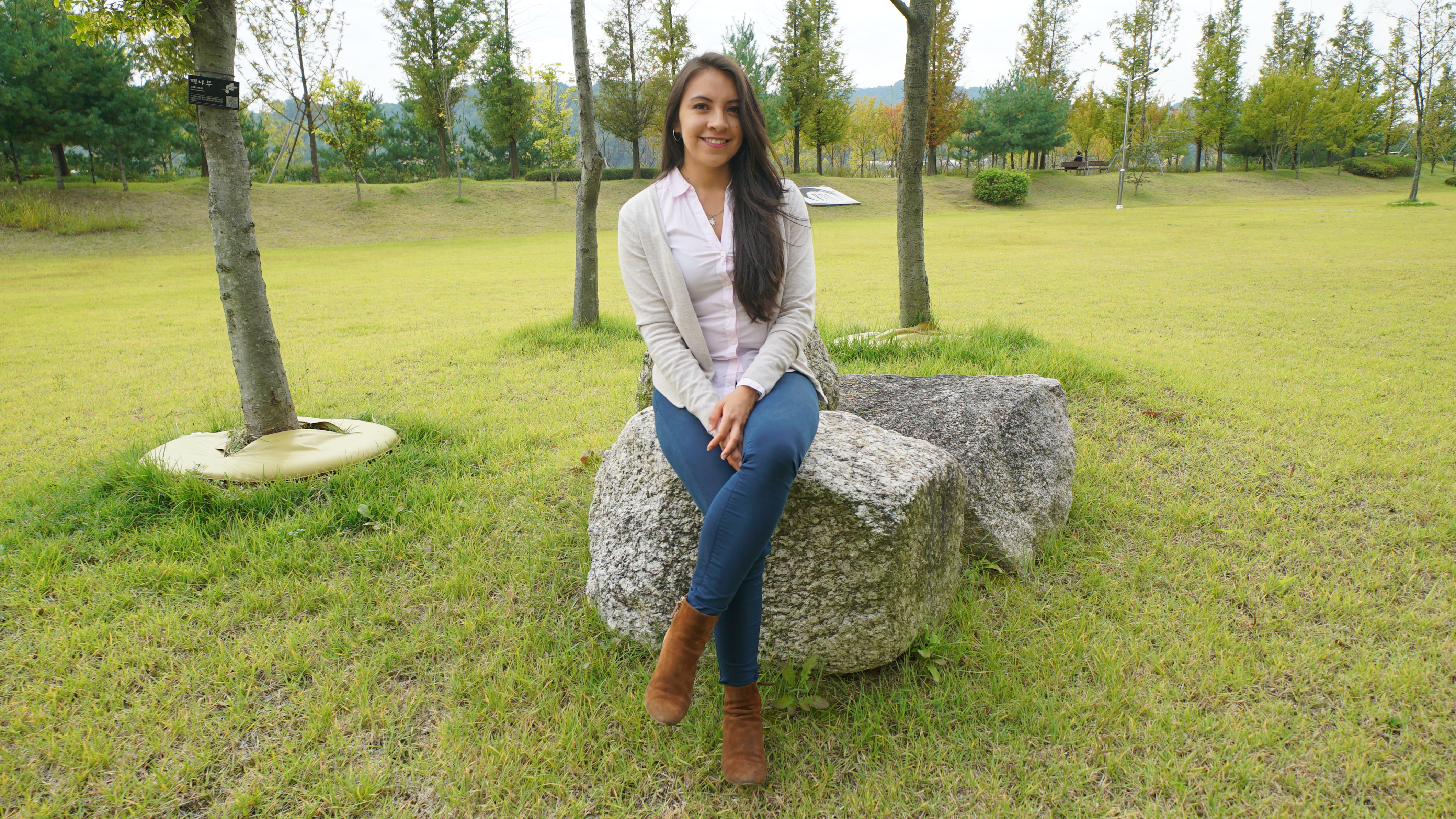
I’m Andrea Romo from Ecuador and currently enrolled in Master’s program in Development Policy. My work experience extends across various international organizations and the local government in Ecuador. I have worked for International Organization for Migration (IOM) and later at the United Nations Development Program (UNDP), volunteering to help implement SDGs at the local level by cooperating with two local governments. Prior to coming here I worked as an adviser on the city council of Ambato, my home city.
Ayantola:
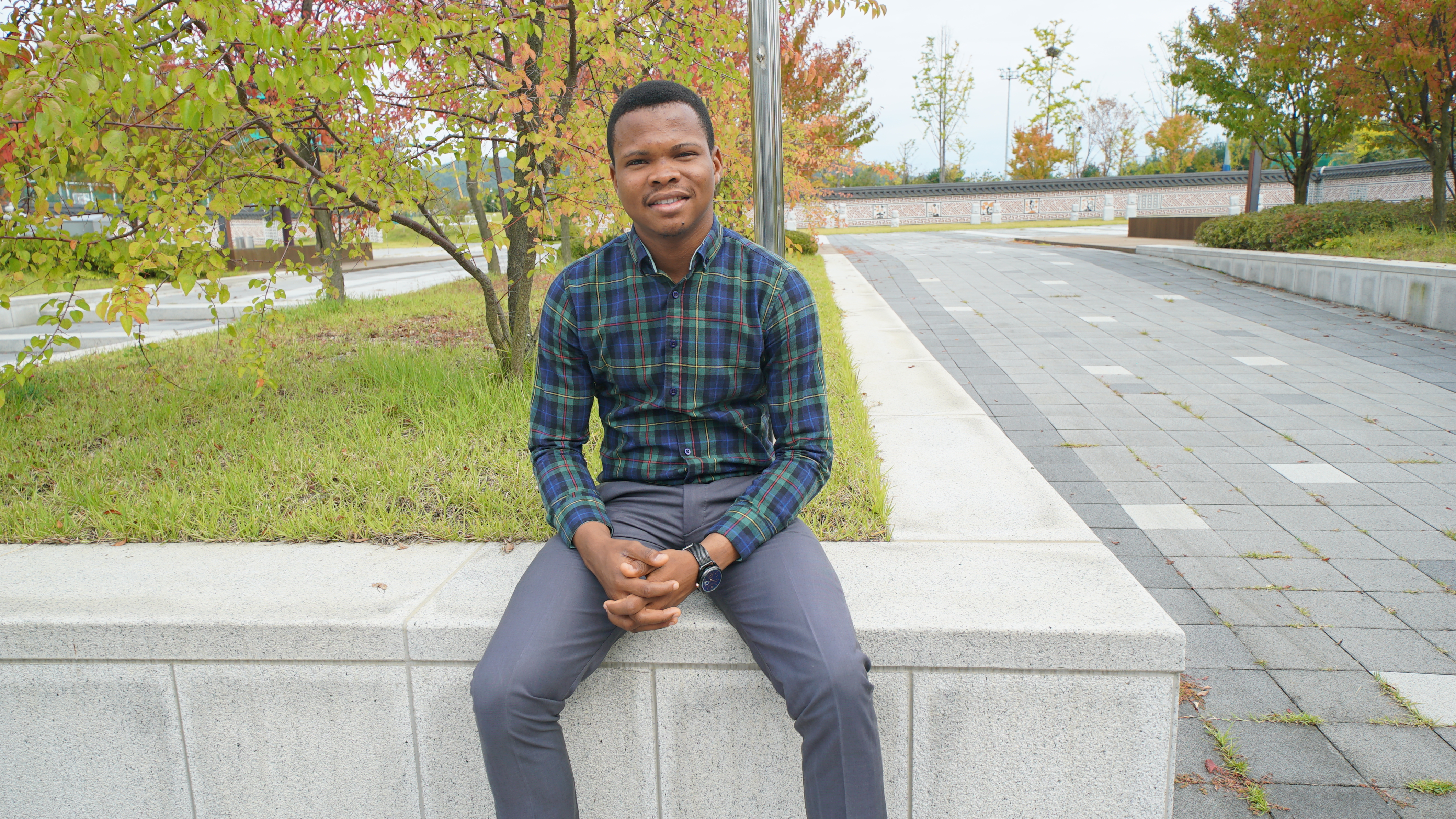
My name is Ayantola Alayande Maximus (“Tola” for short), I am from Nigeria and am currently working on my Master’s in Public Policy. I have been involved in CSO activities for the past 4 years. Before enrolling in my current graduate program, I worked for Junior Achievement Nigeria (JA Nigeria) as a project officer. JA is an organization dedicated to giving young people the knowledge and skills they need to achieve economic success. Apart from that, I have also volunteered for other organizations such as ONE.
Jazmin:
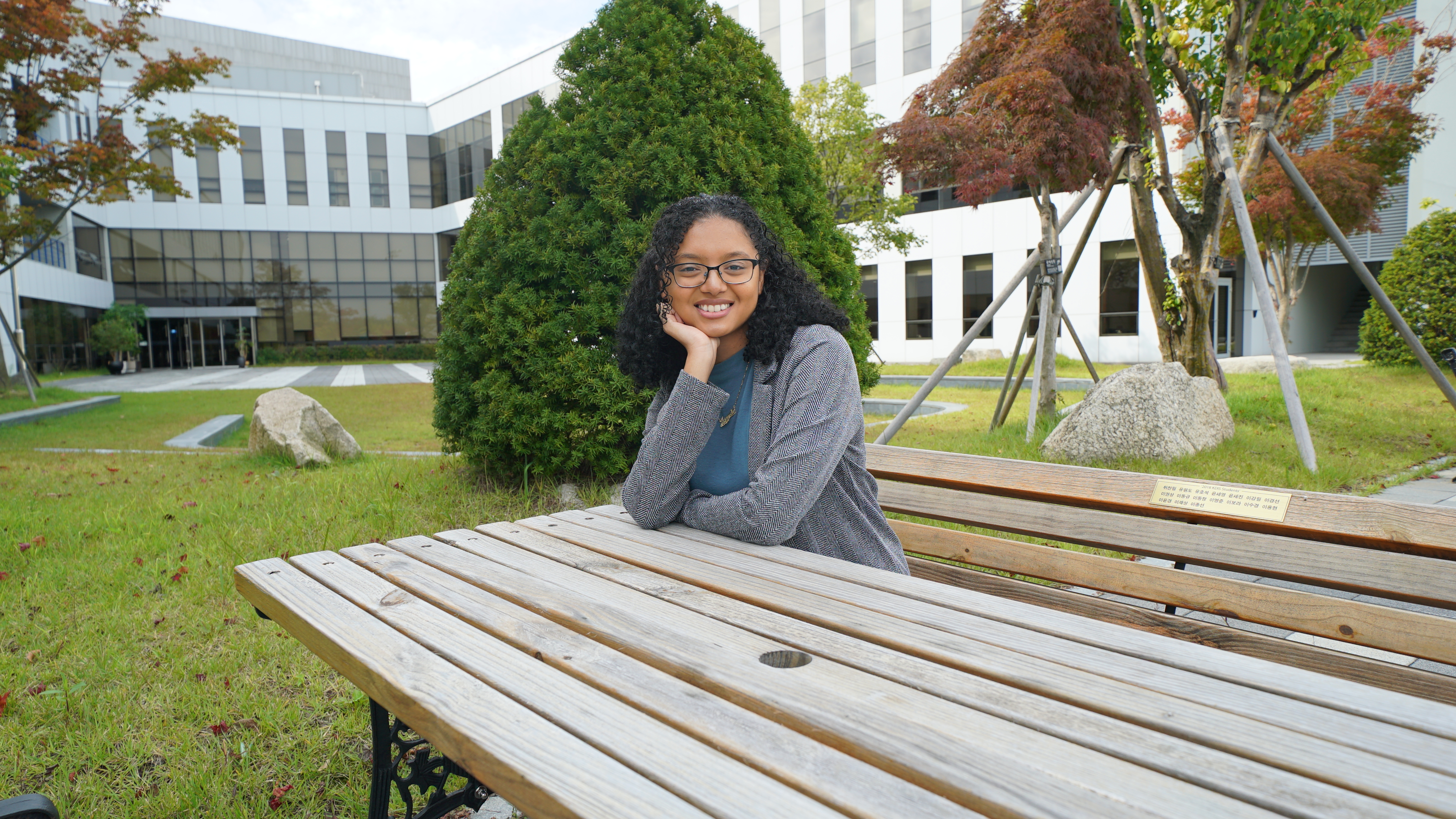
I am Jazmin Ageeb from the Bahamas. Before coming here, I was in Canada completing my undergraduate in Political Science & International Development Studies. Every summer for the 4 years, I used to work at the Ministry of Foreign Affairs in the Bahamas. I am currently doing my Master’s in Public Management.
Rawan:
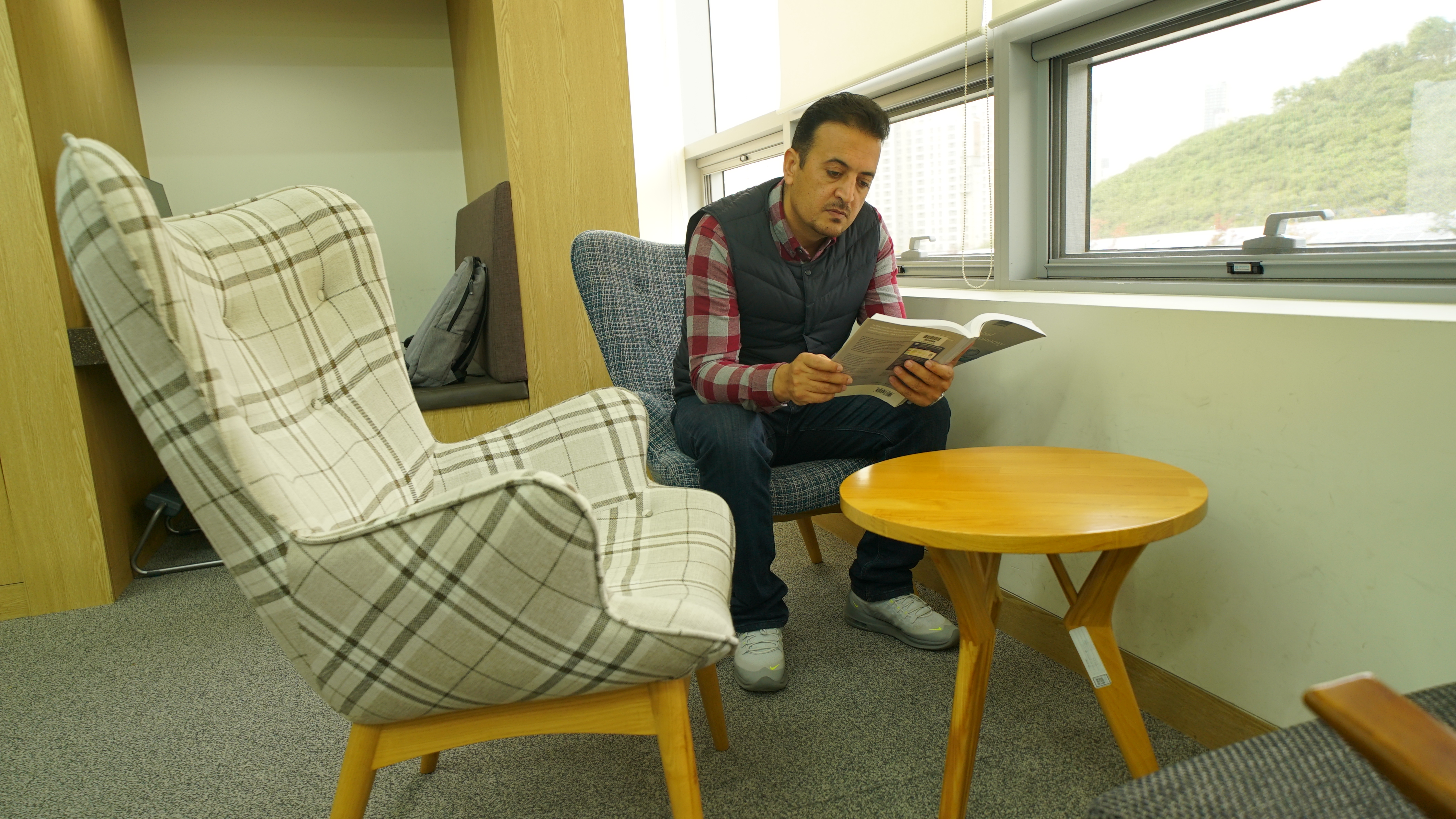
My name is Baryalai Rawan and I’m from Afghanistan. I was working at the President of Afghanistan’s Office as the Deputy Director of eGovernance. Before that I worked with USAID and the UNDP. I am currently enrolled in Master’s program in Public Policy.
2. How did you come to hear about KDIS and what motivated you to apply for its graduate program?
Andrea:
I first heard about KDIS through a foundation I was involved with in Ecuador. I was curious, so I did more research and discovered that the school’s graduate programs would be applicable to my field of work. I was working in the local government and therefore graduate-level knowledge in public policy affairs was critical to improving my skills in this area. With that in mind, I went ahead and applied.
Ayantola:
I learned about KDIS from a Nigerian alumnus who now works at the African Leadership University in Rwanda. Since my area of engagement is more involved with policy making specifically in engaging government stakeholders and civil bodies on policy issues, I felt that having a Master’s in Public Policy would be effective.
Jazmin:
I got a link to KDIS application information from a co-worker at the Ministry of Foreign Affairs. Upon looking into, I was very impressed by how international the school was. For me, it helped put the fear of culture shock aside. I also loved the fact that classes were taught in English and that scholarships were offered too, so I went ahead and applied.
Rawan:
I heard about the school from my brother who visited KDIS in 2016 through an Asia Foundation program. He was very impressed with what he saw and encouraged me to apply. His encouragement in addition to that of a KDIS alumnus who is also a colleague played a big role in my decision to come here.
Another jolt came from the President of my country. He has always insisted on learning from the Korean economic development model to usher in transformation in Afghanistan. I intend to gain the requisite knowledge and then use it to contribute towards my country’s growth.
3. How was the application process?
Andrea:
The information provided on the KDIS website is pretty clear. I carefully went through the information, gathered all my documents and sent everything out. I remember putting a lot of effort into my essay. I think all the preparation on my part made the process a lot easy. I was very excited when I eventually got accepted!
Ayantola:
Actually this was my second time applying. The first time I applied, I was not successful. KDIS only accepts the best of the best, and so the application process demands your best if you wants to get through. The process is pretty rigorous. Writing essays and coming up with a video idea was a little bit tedious to me when I applied the first time. The second time, however, I knew what to improve upon. Thank God it all worked out. The good thing about KDIS is that their application process is self-explanatory. When you look at the website, you will find everything you need. That helped a lot. (Tola got another scholarship to go study in the UK but he turned it down in favour of the KDIS program, because he felt it was a better fit for his career goals.)
Jazmin:
At first I had only thought of doing a trial application but once I sent documents from Canada and realized how expensive it had been, I decided to approach the process with more seriousness. Before the Skype interview I sought advice from a woman in the training department at my work, and she ended up helping me a great deal. Also, I had come across a Bahamian lady who had just graduated from KDIS, and her advice was also really helpful. Their help in addition to the research I conducted on the country and school prepared me for the interview which went well, which went well. After receiving the congratulatory email, I was over the moon. I couldn’t believe how happy I was.
Rawan:
I would say it is quite easy if you prepare well and provide all the required information. I prepared very thoroughly and it all worked out. Gaining admission to KDIS was one of the happiest things to every happen in my life. Everyone around me - my family and colleagues - were all so happy.

4. What do you hope to achieve with your graduate degree once you finish school?
Andrea:
When I return home, I hope to apply my knowledge towards in shaping policy in the area of innovation for economic advancement. I feel my country needs better policies to help people become less dependent on the government. I do not feel that we have an environment to that fosters innovation, investment, and the creation of start-ups companies. My country has a lot of potential, and I believe that we can take full advantage of it with the right policies. That is the approach that I would wish to go for, working in the public sector or in the civilian society space.
Ayantola:
Well, in the little time I have spent here, I have seen some shared experiences between Korea and a lot of African countries, especially Nigeria. It’s interesting to see how Korea transitioned from a country that received donations to a country that gives them. Drawing from what I have observed and learned, I would want my country to follow the same trajectory, particularly in the non-profit space. Also, I hope to use the knowledge and skills I’ve acquired to engage with policy makers. I will continue with my civil projects and non-profit activities, but from a more empowered perspective. Who knows, I might run for a political position in the future and have an even more direct impact on policy making.
Jazmin:
I think I might continue my schooling and pursue a Ph.D. before returning to my country. In terms of contributing to my home country. I want to make our government more efficient and structured in the area I will serve in. Working at the Ministry of Foreign Affairs, I was able to notice some inefficiencies. Little basics like looking for files, modernizing systems, and proper coordination were always an issue. Such simple challenges make it frustrating for employees and get in the way of progress. I will want to contribute to structural and systematic changes for improved efficiency. It boils down to shaping policy to address such things.
Rawan:
KDIS is the best place to learn how to fix failed and fragile states. I am now learning how we can develop proper, people entered public policies so that I can go home and put them in to practice. Afghanistan is a country at war. Due to our ongoing conflicts, we do not have proper policies in practice. I hope that other Afghan students studying abroad and I will go back and help address the situations we face at home. I intend to re-join the government since it is the best place to influence policy. In the long run, I would love to run for a parliamentary seat and be directly involved in policy making.
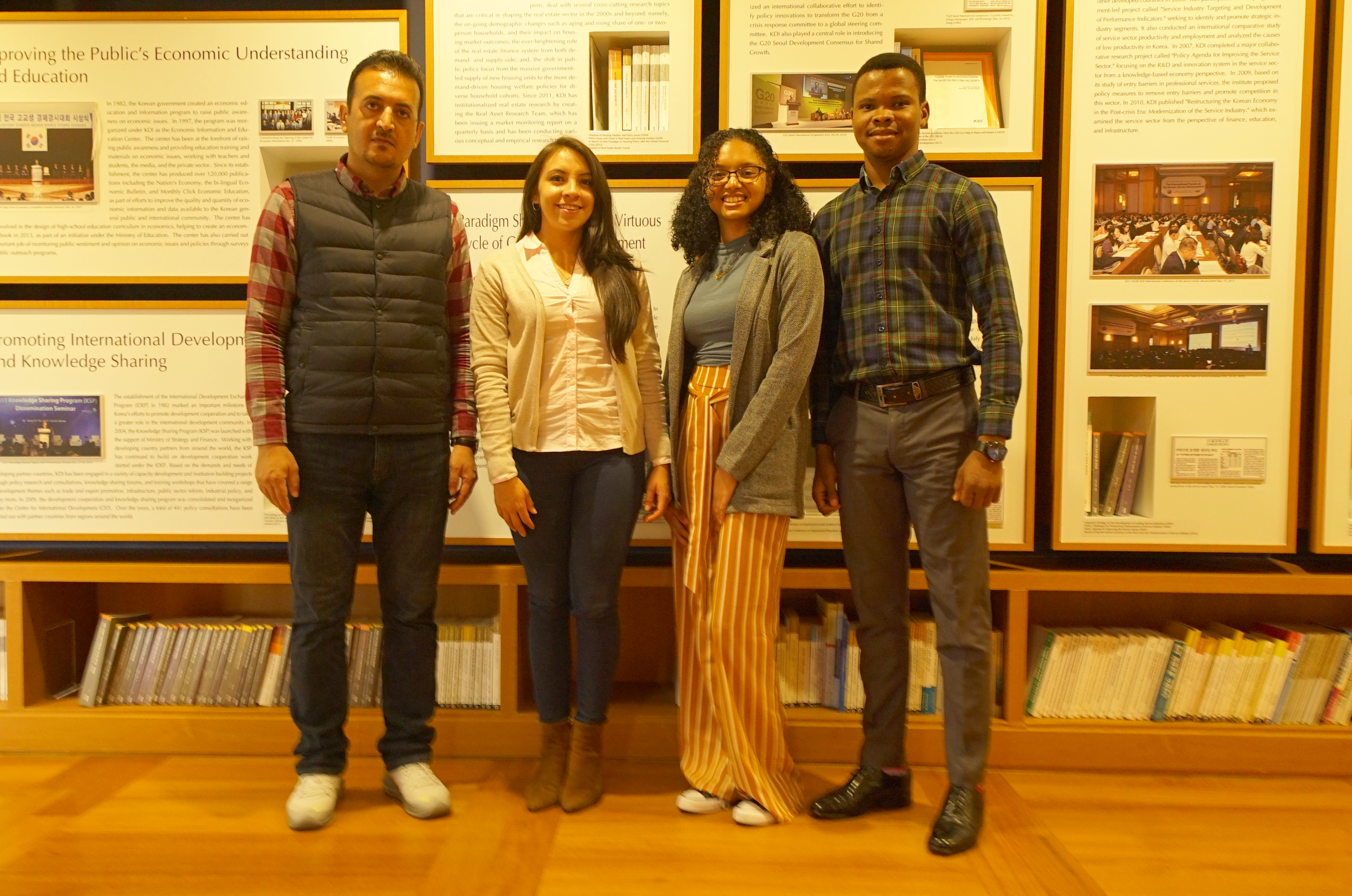
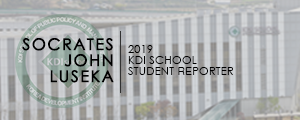
Related News
-
Story406 days ago
Interview with Berik Tankimov (2018 MPP), MSME specialist in Asian Development Bank (ADB)#KDISCHOOL #KDIS #interview #alumni #story #Asian Development Bank
-
News730 days ago
Celebrating International Women's Day 2022 with Prof. Joeun Kim#KDISCHOOL #KDIS #Internationalwomensday #professor #Interview #JoeunKim
-
Story823 days ago
Small Acts of Kindness with Big Impacts - Stories from KDIS Students#Interview #kdi #KDIS #KDI school #Student #kdischool #kindness
